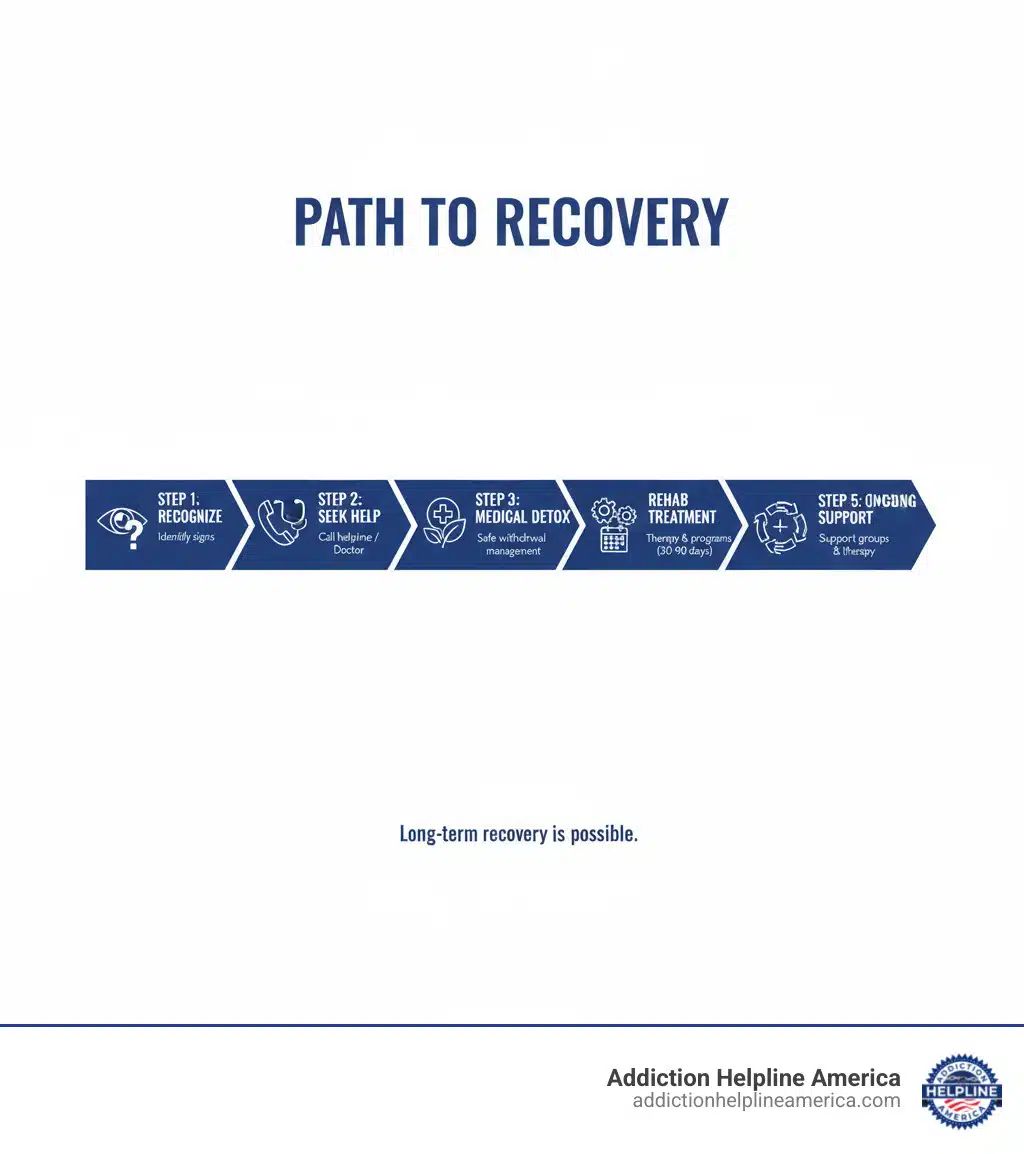Alcohol Addiction Rehab Centers provide specialized treatment for individuals struggling with alcohol use disorder, offering medical detox, therapy, and ongoing support to help people achieve lasting sobriety. These facilities range from inpatient residential programs with 24/7 care to flexible outpatient options, and most accept various insurance plans including Medicare, Medicaid, and VA benefits.
Quick Guide to Alcohol Addiction Rehab Centers:
| What You Need to Know | Key Details |
|---|---|
| Types of Treatment | Medical detox, inpatient (residential), outpatient (IOP/PHP), and online counseling |
| Program Length | Typically 30, 60, or 90 days for inpatient; 1-6 months for outpatient |
| Cost & Coverage | Most insurance plans cover some or all treatment; verification required |
| Core Therapies | CBT, DBT, motivational interviewing, group therapy, 12-step programs |
| Who Needs Help | Anyone experiencing cravings, withdrawal symptoms, tolerance, or inability to quit |
The statistics are sobering: 29.5 million people in the United States had an alcohol use disorder in 2023. Over 300 Americans die every day from alcohol or drug overuse. If you or someone you love is part of these numbers, you’re facing one of the most important decisions of your life—choosing the right treatment center.
But here’s the challenge: not all rehab centers are created equal.
Some offer medical detox while others don’t. Some provide 24/7 inpatient care, while others let you live at home during treatment. Some accept your insurance, and some don’t. The choices can feel overwhelming when you’re already struggling.
At Addiction Helpline America, we’ve guided thousands of individuals and families through the process of finding the right Alcohol Addiction Rehab Centers that match their specific needs, insurance coverage, and recovery goals. Our team connects people with evidence-based treatment options nationwide, providing the confidential support you need during this critical time.
This guide breaks down the five essential things you need to know before making your choice—from understanding different levels of care to navigating insurance coverage, recognizing when detox is necessary, and planning for life after treatment.

When you’re searching for Alcohol Addiction Rehab Centers, one of the first things you’ll find is that “rehab” doesn’t mean the same thing everywhere. Think of it like choosing a route for a road trip—there are highways, scenic routes, and winding backroads, each suited to different travelers and destinations. The same is true for recovery from alcohol use disorder.
The right level of care makes all the difference. Too little support, and you might struggle to maintain sobriety. Too much structure when you don’t need it, and you might feel restricted or disconnected from your daily life. The key is finding the treatment intensity that matches where you are right now—and where you need to go.
Alcohol Addiction Rehab Centers typically offer different levels of care based on how much medical supervision and therapeutic support you need. These programs combine evidence-based treatments, various therapeutic modalities, and different durations to create a recovery plan that actually works for your life.


Take the first step towards a healthier life! Call now to connect with our compassionate team and start your recovery journey today. Your path to healing awaits!
Our recovery specialists are available 24/7 to provide support, and all calls are confidential and free. Reach out anytime – we’re here to help!
The biggest choice you’ll face is between inpatient and outpatient treatment. Both paths lead toward recovery, but they look and feel completely different.
Inpatient rehab—sometimes called residential treatment—means you live at the treatment facility full-time. We’re talking 24/7 care in a structured environment designed specifically for healing. You’ll sleep there, eat there, attend therapy there, and be surrounded by medical professionals and peers who understand what you’re going through.
This level of care is often the best choice if you’re dealing with severe alcohol use disorder, if you’ve tried to quit before and struggled, or if your home environment has too many triggers. It’s also essential if you have co-occurring mental health conditions like depression or anxiety that need close monitoring. Think of it as creating a protective bubble around yourself while you do the hard work of getting better.
Outpatient rehab offers a different kind of flexibility. You attend therapy sessions and treatment activities at scheduled times during the week, but you go home afterward. You keep your job, sleep in your own bed, and maintain your daily responsibilities while working on your recovery.
This approach works well if your alcohol use disorder is less severe, if you have a strong support system at home, or if you’ve already completed an inpatient program and need continued care. It’s also the practical choice if you simply can’t take time away from work or family obligations.
Within outpatient care, there are two main types you’ll encounter. Intensive Outpatient Programs (IOPs) typically involve several hours of therapy multiple days per week—maybe three to five days, for three to four hours each day. It’s substantial support without requiring you to move into a facility.
Partial Hospitalization Programs (PHPs) are even more intensive. Sometimes called “day treatment,” these programs have you at the facility for most of the day, five to seven days a week. You’re getting nearly the same level of care as inpatient treatment, but you return home each evening.
Here’s how these options compare:
| Feature | Inpatient Rehab | Outpatient Rehab |
|---|---|---|
| Key Features | 24/7 care, structured environment, medical supervision | Live at home, flexible schedule, self-management |
| Best For Whom | Severe AUD, co-occurring disorders, unstable home environment | Milder AUD, strong support system, post-inpatient care |
| Duration | Typically 30, 60, or 90 days (can be longer) | 1–6 months (can be longer depending on intensity) |
| Cost | Generally higher due to accommodation and round-the-clock care | Generally lower, as it doesn’t include living expenses |
No matter which level of care you choose, quality Alcohol Addiction Rehab Centers will offer a range of proven therapies that get to the heart of why you drink and how you can stop. Alcohol addiction isn’t just physical—it’s tangled up with emotions, thought patterns, trauma, and relationships. That’s why effective treatment addresses all these layers.
Cognitive Behavioral Therapy (CBT) is one of the most widely used approaches, and for good reason. It helps you spot the negative thought patterns that lead to drinking—like “I can’t handle stress without alcohol” or “I’m not worth the effort of recovery”—and replace them with healthier, more realistic ways of thinking. You’ll learn practical skills for managing cravings and avoiding relapse.
Dialectical Behavioral Therapy (DBT) takes things a step further, especially if you struggle with intense emotions or have difficulty regulating your feelings. DBT teaches mindfulness, distress tolerance, emotional regulation, and how to steer relationships without turning to alcohol when things get hard.
Motivational Interviewing is different from traditional counseling. Instead of being told what you should do, your therapist helps you find your own reasons for wanting to change. This collaborative approach strengthens your personal commitment to recovery, which is often more powerful than external pressure.
Group therapy is a cornerstone of most programs, and many people find it surprisingly healing. Sitting in a circle with others who truly understand what you’re going through can break the isolation that addiction creates. You’ll share experiences, gain new perspectives, offer support, and realize you’re not alone in this fight.
Individual counseling gives you private one-on-one time with a therapist to dig into personal issues, set specific goals, and work through challenges at your own pace. Some things are easier to discuss without an audience.
Family therapy recognizes that alcohol addiction affects everyone who loves you. These sessions help repair damaged relationships, teach your family about addiction, improve communication, and set healthy boundaries. Recovery is often more successful when your loved ones understand how to support you.
Many centers also offer holistic therapies like yoga, meditation, art therapy, music therapy, or even equine therapy. These approaches address your spiritual and physical well-being alongside your mental health, helping you build a more balanced, fulfilling life in recovery.
There’s no universal answer to this question because everyone’s journey is different. The severity of your alcohol use disorder, whether you have other mental health conditions, how you respond to treatment, and your personal circumstances all play a role in determining the right program length.
For inpatient programs, you’ll typically hear about 30-day, 60-day, or 90-day options. A 30-day program can provide solid initial stabilization and detox, along with foundational therapy and coping skills. However, research consistently shows that longer stays—especially 60 or 90 days—often lead to better long-term outcomes. The extra time allows you to practice new behaviors, work through deeper issues, and build stronger recovery habits before returning to everyday life. Some people even benefit from long-term residential programs lasting several months to a year.
Outpatient programs generally run anywhere from one to six months, though they can extend longer if needed. Many people use outpatient care as a step-down after completing inpatient treatment, gradually transitioning back to independence while maintaining therapeutic support. Others enter outpatient treatment directly if their needs are less acute.
The truth is, recovery isn’t about checking boxes or hitting a specific day count. It’s about giving yourself enough time to truly change—to understand your triggers, develop new coping mechanisms, heal relationships, and build confidence in your ability to stay sober. That timeline looks different for everyone, and the best treatment centers will work with you to create an individualized plan that evolves as you progress.

Take the first step towards a healthier life! Call now to connect with our compassionate team and start your recovery journey today. Your path to healing awaits!
Our recovery specialists are available 24/7 to provide support, and all calls are confidential and free. Reach out anytime – we’re here to help!
Choosing an Alcohol Addiction Rehab Center is one of the most important decisions you’ll make on your recovery journey. It’s deeply personal—what helps one person heal might not work for another. The right center should feel like a place where you can be honest, vulnerable, and supported as you work toward sobriety.
We know the search can feel overwhelming. There are hundreds of facilities out there, each with different approaches, amenities, and price points. But here’s the truth: the fanciest facility with the nicest pool isn’t necessarily the one that will help you get sober. What matters most are the fundamentals—quality care, qualified staff, and a treatment approach that fits your specific needs.

When evaluating facilities, focus on these core indicators of quality:
One-size-fits-all treatment rarely works. Many Alcohol Addiction Rehab Centers offer specialized programs for specific populations:
Deciding whether to stay local or travel for treatment depends on your personal situation.
Staying local makes it easier for family to participate in therapy and helps you build a local support network for when you transition home.
Traveling for rehab offers a fresh start, removing you from daily triggers and stressors. It provides privacy and allows you to focus completely on recovery. Sometimes, the best program for your specific needs may not be in your area.
At Addiction Helpline America, we can help you weigh these options and find quality treatment, whether it’s nearby or across the country. Find Help Near You!
Concerns about the cost of rehab are common, but paying for treatment is more manageable than many people think. Don’t let financial worries stop you from seeking help.

The cost of Alcohol Addiction Rehab Centers varies widely based on several factors:
The cost of not getting help—in terms of health, relationships, and career—is almost always higher than the cost of treatment. Recovery is an investment in your future.

Take the first step towards a healthier life! Call now to connect with our compassionate team and start your recovery journey today. Your path to healing awaits!
Our recovery specialists are available 24/7 to provide support, and all calls are confidential and free. Reach out anytime – we’re here to help!
Thanks to federal laws, using insurance for addiction treatment is more accessible than ever.
Figuring out your coverage doesn’t have to be a struggle. Here are the best ways to verify your benefits:
Admitting you need help is often the hardest step, but it’s an act of courage, not failure. Alcohol use disorder is a medical condition that changes brain chemistry, and recognizing the signs is the first move toward recovery.
Alcohol Use Disorder (AUD) is the clinical term for an impaired ability to control alcohol use despite harmful consequences. If you’re wondering if your drinking is a problem, it’s a sign worth exploring. Key indicators that it’s time to seek help from Alcohol Addiction Rehab Centers include:
If these signs are familiar, we encourage you to take a confidential self-assessment to gain clarity. There is no judgment, only a path forward.
For anyone with a history of moderate to severe alcohol use, medical detoxification is a critical and potentially life-saving first step. Attempting to detox alone at home can be extremely dangerous.
When you stop drinking suddenly, your body can go into shock, leading to severe withdrawal symptoms. These can include tremors, seizures, and hallucinations. In the most severe cases, a condition called Delirium Tremens (DTs) can occur, causing confusion, rapid heart rate, and fever. DTs are a medical emergency that can be fatal without proper care.
Medically-supervised detox, often the first phase at Alcohol Addiction Rehab Centers, provides 24/7 monitoring by healthcare professionals. They can administer medications to manage withdrawal symptoms, prevent dangerous complications like seizures, and make the process safer and more comfortable.
Detox typically lasts a few days to a week. It isn’t a cure for addiction, but it stabilizes your body and prepares you for the therapeutic work of rehab. To find a safe medical detox program, please reach out to Addiction Helpline America for free, confidential guidance.
Completing a program at an Alcohol Addiction Rehab Center is a major achievement, but it’s the beginning of a new journey, not the end. Lasting recovery depends on aftercare—the ongoing support you receive after leaving treatment. It’s also vital for loved ones to know how to provide effective support.

What Resources Are Available for Ongoing Support?
Aftercare is your safety net for navigating the real world. Building a strong, personalized support system is key. Common resources include:
If you love someone in recovery, your support is crucial. Here’s how you can help effectively:
At Addiction Helpline America, we guide both individuals and their families. You don’t have to steer this journey alone.
Here are answers to some of the most common questions we receive about Alcohol Addiction Rehab Centers.
While related, they are different. Alcohol dependence is a physical reliance, where the body has adapted to alcohol and experiences withdrawal without it. Addiction is a disease characterized by compulsive use despite harmful consequences, cravings, and a loss of control. The clinical term Alcohol Use Disorder (AUD) covers this spectrum.
No, federal laws generally protect you. The Family and Medical Leave Act (FMLA) allows for up to 12 weeks of unpaid, job-protected leave for medical treatment, including rehab. The Americans with Disabilities Act (ADA) protects individuals with a history of addiction from employment discrimination, as long as they can perform their job duties. It’s always wise to review your company’s specific policies.
This is common, and find an Alcohol Addiction Rehab Center that offers dual diagnosis or integrated treatment. This approach addresses both your alcohol use disorder and your mental health condition (like depression, anxiety, or PTSD) at the same time. Treating only one condition often leads to relapse, so integrated care is the gold standard for a successful recovery.
Choosing the right Alcohol Addiction Rehab Center is one of the most important decisions you can make for yourself or a loved one. We’ve covered the essentials: understanding levels of care, navigating costs and insurance, recognizing the need for detox, and planning for long-term success with aftercare.
If you’re reading this, you’ve already taken a courageous first step by seeking information. That readiness is where all recovery begins.
Recovery is possible. With the right support and evidence-based treatment, people rebuild their lives every day. The Alcohol Addiction Rehab Centers we partner with have helped countless individuals reclaim their health, relationships, and futures.
At Addiction Helpline America, we exist to make this process easier. Our team provides free, confidential guidance to connect you with a program that matches your unique needs, insurance, and goals. You don’t have to steer the complexities of finding treatment alone.
The path to recovery starts with a single conversation. Let us help you take that next step.
Are you or a loved one struggling with addiction? Call today to speak to a treatment expert.
For anyone seeking help for addiction for themselves or a loved one calls to Addiction Helpline America are completely confidential and available 24/7.
Please note: any treatment center listed on our site that receives calls is a paid advertiser.
Calls to a specific treatment center’s listing will be connected directly to that center.
Calls to our general helpline will be answered by treatment providers, all of whom are paid advertisers.
By calling the helpline, you agree to our terms and conditions. These calls are free of charge and carry no obligation to enter treatment. Neither Sober Steps nor anyone answering your call receives a commission or fee based on your choice of treatment provider.
If you’d like to explore additional treatment options or connect with a specific rehab center, you can browse our top-rated listings, visit our homepage, or call us at (844) 561-0606. You may also contact us for further assistance.
Calls to any general helpline will be answered or returned by one of the treatment providers listed, each of which is a paid advertiser:
Our helpline is available 24 hours a day, 7 days a week at no cost to you and with no obligation for you to enter into treatment. We are committed to providing support and guidance whenever you need it.
In some cases, Addiction Helpline America charges our verified partner a modest cost per call. This fee helps us cover the costs of building and maintaining our website, ensuring that we can continue to offer this valuable service to those in need.